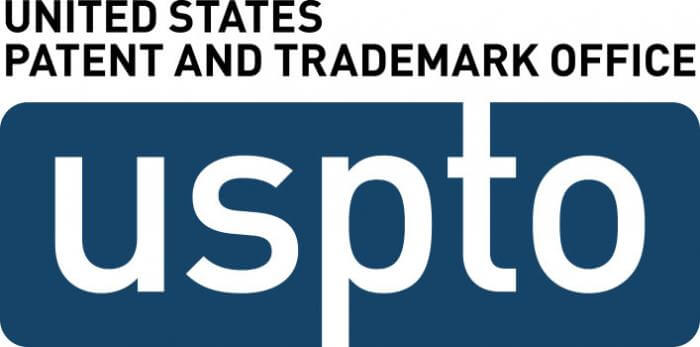Trump May Have Violated Copyright Law With Mugshot Merchandise
Takeaway: Trump used his own mugshot to make $7.1 million in merchandise sales without proper rights to image.

The Trump campaign has faced legal scrutiny for potentially violating U.S. copyright law by selling merchandise featuring former President Donald Trump’s mugshot. It is argued that the rights to the image belong to the Fulton County Sheriff’s Office, which took the photo during Trump’s booking, and any financial gains from it may rightfully belong to the Sheriff’s Office under U.S. copyright law.
The merchandise in question featured Trump’s scowling mugshot taken at the Fulton County Jail in Atlanta, with the slogan “Never surrender.” This image was quickly emblazoned on various items, including T-shirts, mugs, and bumper stickers. Within just three days, the Trump campaign reportedly made $7.1 million in sales.
According to U.S. copyright law, the law enforcement agency that captures the mugshot is the legal owner of the image.
In this case, since it did not appear the Trump campaign made any substantial alterations to the mugshot, they may not be able to claim that it was transformed into something new. Additionally, because they were profiting from the image, the fair use defense may be an issue.
Ultimately, the decision to pursue legal action against the Trump campaign or any others that used the mugshot for financial gain rests with the Fulton County Sheriff’s Office, which took the photograph.
Design Patent Invalidated by the Product Intended to be Patented
Takeaway: Make sure a patent application is filed before or within one year of sale or public disclosure of the product to be patented.

In Top Brand LLC v. Cozy Comfort Company LLC, two clothing manufacturers were engaged in a patent infringement dispute. Cozy Comfort owns four design patents for The Comfy, an oversized hoodie that is advertised as a wearable blanket. Top Brands manufactures and sells its own oversized hoodie. Cozy Comfort accused Top Brands of infringing its design patents, and Top Brands denied infringement and asserted that the Cozy Comfort design patents were invalid.
Under U.S. patent law, when a product is offered for sale, the owner must file a patent application within one year of the date of the first offer for sale or any other public disclosure. If the owner fails to meet this one-year deadline, the product itself becomes prior art against any patent application filed by the owner. The Comfy was first offered for sale on September 28, 2017. Of the four design patents filed by Cozy Comfort, the first was filed before the critical sale date, the second was filed within one year of the critical date, but the last two were filed well after one year of the critical date. Through a practice observed by U.S. law, the last two filed design patents could have benefitted from the filing date of the first patent, but only if all designs in those later patents were disclosed in the first patent.
In this case, the third patent included three different designs, one that the court said could have been supported by the first patent, but the other two designs (middle two drawings above) were determined to be different from the original design in the first patent (left drawing). Because these new designs were included with an old design, the last two patents could not benefit from the filing date of the first patent, and the product these design patents were intended to protect ended being the basis for invalidating those last two design patents. As such, the accused product (shown on the right) could not infringe an invalid patent. The case, however, is ongoing with respect to whether the accused product infringes the first patent.
USPTO Mandates Domicile Addresses for Trademark Applications
Takeaway: As of August 2023, the USPTO is requiring a domicile address for trademark applications, possibly causing privacy challenges for online businesses.
The USPTO has introduced a new requirement for trademark applications, demanding a domicile address, even from businesses operating solely online. This change, implemented in August 2023, is based on the USPTO’s argument that it upholds statutory requirements and prevents applicants from bypassing regulations. However, this shift raises privacy concerns, as corporate officers may be required to disclose their home addresses, potentially compromising their privacy. While these addresses can be masked, mistakes in filing could lead to unintended public exposure. Existing trademark registrations must also comply during maintenance filings. If this is of concern to you or your business, we would be happy to provide you crucial trademark counsel in this changing landscape.
Court Rules On Watermelon Trade Dress Candy Case
Takeaway: The Third Circuit has upheld a decision that rejected trademark protection for a candymaker’s wedge-shaped candies with watermelon-like colors, ruling that these design elements serve a functional purpose by indicating the candy’s flavor.

The Third Circuit has ruled that a candy maker cannot prevent competitors from selling wedge-shaped candies that resemble watermelon slices in both shape and color, as these design elements are functional. These characteristics merely indicate the candy’s flavor, making them ineligible for trademark protection. This decision upheld a 2022 ruling that canceled PIM Brands’ trademark for its “Sour Jack” watermelon candies, a case brought against Haribo of America Inc., which produced similar-looking watermelon-flavored candies.
The court found that the combined color (red and green) and shape (wedge) of PIM’s candies were utilitarian in nature as they effectively communicated the candy’s watermelon flavor, and therefore, they did not qualify for trade dress protection. PIM had sued Haribo in 2019 for trademark and trade dress infringement, but the court ruled in favor of Haribo, stating that PIM’s design choices were functional, serving the sole purpose of identifying the candy’s flavor.
This ruling emphasized that trade dress protection is limited to design choices that exclusively brand a product, with functionality being a key consideration. The decision aligns with the Third Circuit’s previous judgment in Ezaki Glico Kabushiki Kaisha v. Lotte Int’l Am. Corp., which sets a low bar for what constitutes functionality in trade dress.
Image Credit: law.com/njlawjournal/2023/09/14/ sweet-defeat-3rd-circuit-says-candymaker-cant-trademark-watermelons-shape-and-colors/
USPTO Requires ID Verification for Attorney Support Staff Due to Fraud Concerns
Takeaway: Starting January 20, 2024, all attorney staff with a USPTO.gov account must verify their identities to prevent fraudulent activities.

The U.S. Patent and Trademark Office (USPTO) has mandated that all attorney support staff with USPTO.gov accounts verify their identities by January 20, 2024 due to concerns about fraudulent usage by foreign agents. Some U.S. attorneys have sponsored accounts for unsupervised individuals, including foreign agents, raising security issues. Existing unverified accounts will lose access to trademark forms starting January 20, 2024. This move aims to protect the integrity of the U.S. trademark register and prevent fraudulent activities. Previously, identity verification was not required for support staff accounts sponsored by attorneys.
Federal Circuit Rulings Bring Clarity to Design Patent Law
Takeaway: The U.S. Court of Appeals for the Federal Circuit recently clarified key aspects of design patent law, addressing the scope of comparison prior art and the role of logos in infringement analysis, offering consistency and discretion to district courts.
In a recent precedential decision, the U.S. Court of Appeals for the Federal Circuit clarified key aspects of design patent law. The case in question, Columbia Sportswear North America, Inc. v. Seirus Innovative Accessories, Inc., centered on the infringement of a design patent related to heat-resistant liner material. Initially, a district court ruled in favor of Columbia, but Seirus appealed. The Federal Circuit vacated the summary judgment and remanded the case. Subsequently, Columbia appealed again after a jury found non-infringement at the district court level.
The Federal Circuit addressed two main issues in this case:
1. Scope of Comparison Prior Art: The court clarified that the scope of comparison prior art in design patent infringement cases is limited to the article of manufacture identified in the patent claim. This aligns with previous Federal Circuit decisions that required prior art designs to be applied to the same article of manufacture as specified in the claim for anticipation or infringement analysis.
2. Effect of a Logo on Infringement Analysis: The court left it to district courts to determine how juries should consider the impact of logos or trademarks applied to accused goods during a design patent infringement analysis. The court emphasized the distinction between trademark infringement (which involves consumer confusion about a product’s source) and design patent infringement, stating that the lack of confusion regarding the source does not preclude a determination of design patent infringement. However, the court acknowledged that logos and trademarks could affect the similarity between the patented and accused designs, potentially leading to a finding of non-infringement.
The decision offers clarity and consistency in applying the same standards for prior art analysis in patentability, infringement, and comparison art assessments. It also grants district courts discretion in deciding how logos and trademarks should be considered in design patent infringement cases on a case-by-case basis, providing flexibility in addressing this issue.
Cislo & Thomas LLP Spotlight
Cislo & Thomas LLP Senior Managing Paralegal: Tara Richen
Since starting at Cislo & Thomas in March of 2001, Tara has been committed to providing each client, whether individual entrepreneur or large company, with the utmost client care, quality, and professionalism.

As the Senior Managing Paralegal and with nearly 23 years at the firm, Tara is an expert in all things trademark law. She is also the firm’s Protocol and Workflow Officer, ensuring we maintain quality and consistency through all client matters.
Outside of work, Tara and her husband enjoy being parents of a college student, freshman year at Colorado University Boulder. Her house is now divided – Tara being a UCLA Bruin and her daughter being a Boulder Buff – they will attend the UCLA v. Boulder game at the Rosebowl. Go Bruins!
Tara’s favorite quote – “There is no limit to what a man can do or where he can go if he does not mind who gets the credit.” Tara strives to live by those words, as her favorite part of working at Cislo & Thomas is the firm’s culture of quality care for its clients and its employees.
Tara enjoys reading and would love any book recommendations so feel free to reach out to her with any “must-reads” – she would enjoy hearing from you!
Thank you Tara for all you do at Cislo & Thomas!



